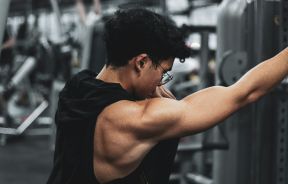NJ Senate Panel OKs Human Breast Milk Banks For Moms Who Can't Produce Their Own

New Jersey moms may soon be able to open up a checking account at their local breast milk bank.
Earlier this week, the NJ Senate’s budget committee unanimously approved a measure to allow the state health department to issue licenses to entrepreneurial spirits who’d like to open up a breast milk bank, according to the Associated Press. With a similar bill receiving approval in the Assembly, it seems that it’s only a matter of when, not if, mothers will be able to deposit and withdraw breast milk in the state. "We have learned so much about the benefits of breastfeeding and the positive results associated with human breast milk as the primary sources of food and nutrition for infants," said Democratic state Senator and bill sponsor Loretta Weinberg, as per the AP.
The concept of breast milk donation have slowly but surely garnered popular support among mothers. For those with difficulty lactating or nursing, these donations have served as a crucial replacement for their maturing infants (though at least one recent study last year concluded that the benefits of breast milk over formula are overstated). In a report by the Human Milk Banking Association of North America (HMBANA), they stated that the amount of milk distributed annually from their certified banks in 2009 was triple than what was shipped out in 2000.
HMBANA has led the charge in establishing concrete standards for the processing (including pasteurization), storage, and donation of human breast milk. These HMBANA banks (15 as of now) have extensive procedures to keep their milk safe, either from outside contamination or from unsuitable donors (the HIV virus have been known to transmit via breast milk). But accompanying legislation allowing for human breast milk donation has been somewhat slow from state to state, and in that gap, informal and local breast milk swaps have been set up instead. While these private donation services are as convenient as purchasing another person’s lactation can ever possibly be, it does leave mothers and their infants open to a variety of unseen risks. As the HMBANA report notes, however, there have been no documented cases of disease transmission or death as a result of milk donation.
With these possible dangers in mind, the NJ bill allows for the regulation of any prospective banks who don’t adhere to proper guidelines, including the suspension of their license if need be. For soon-to-be Jersey mothers, it seems their breast milk banking will now be a safe and hassle-free experience.



























